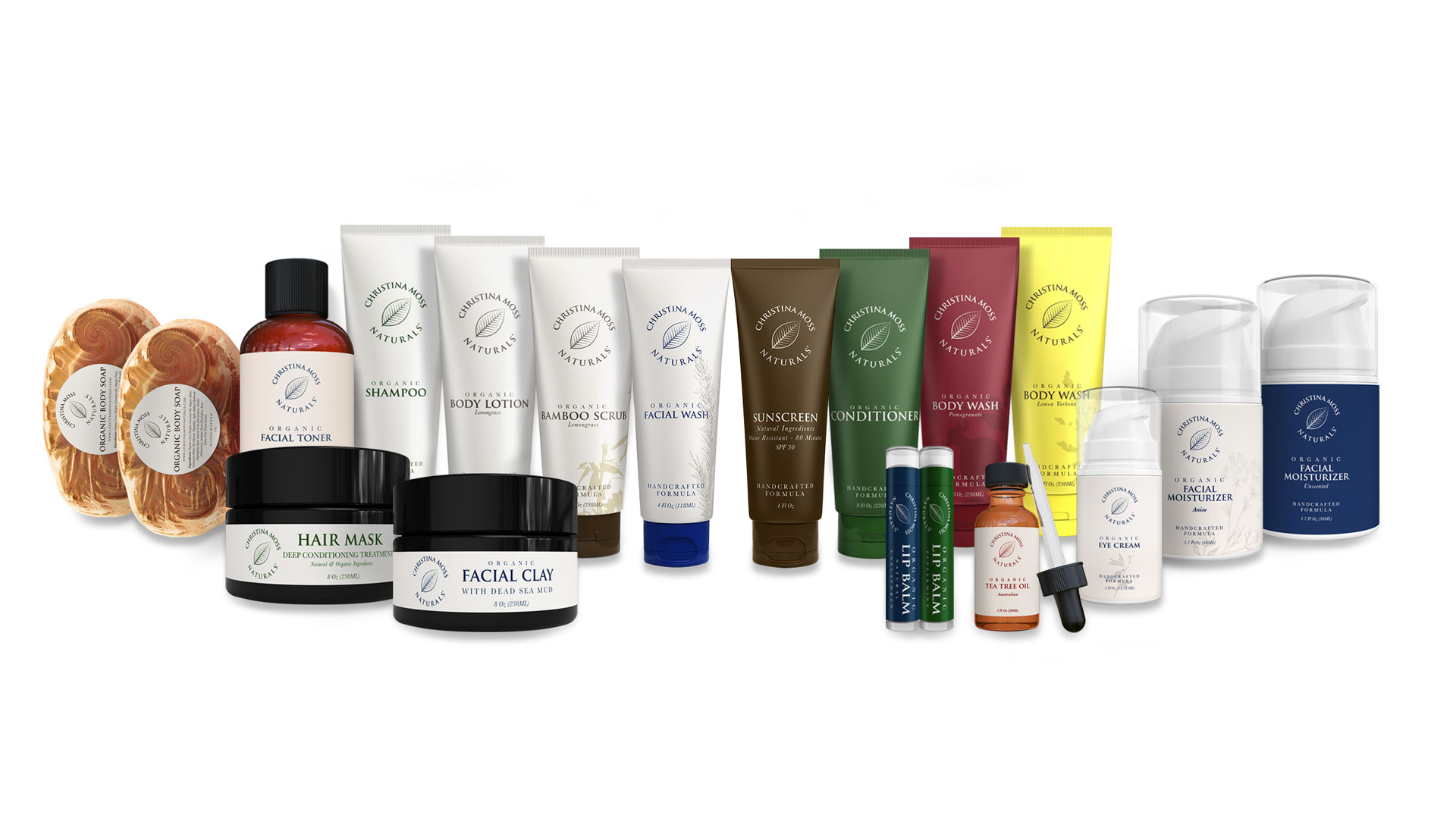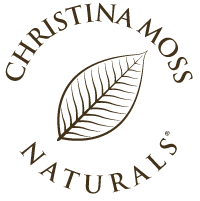Who doesn’t like something colorful? I know I do. Take a look at your shampoos, soaps, lotions, and cosmetics and you’ll see a rainbow of lovely shades. Unfortunately, most manufacturers rely on artificial dyes to fill their products with color. Here’s everything you need to know about artificial colorants, and why they’re worth avoiding wherever you can:
Author: Christina Moss
Fluoride
Here’s a quick quiz: what used to be a way to control cockroach and lice infestations, and is now in our drinking water? The answer: fluoride.
Fluoride is difficult to avoid. It’s in our water, our juice, our wine and beer, and even in baby formula. While water fluoridation has been banned in most European countries, it’s everywhere in the American food supply. This is extremely troubling, as over-consumption of it has been linked to a number of very serious issues. Here are four of the most worrisome:
Natural Preservatives
Bacteria, mold, and yeast are a fact of life. Sometimes they’re beneficial, but when it comes to health and beauty products? No thank you. Preservatives are a vital part of making sure your lotion, soap, or shampoo lasts long enough for you to use it.
Unfortunately, preservatives are also an area where you can run into trouble if you use conventional products. Take parabens, for example. While this widely used class of preservatives does extend shelf life, it is also associated with a number of troubling health concerns.
Propylene Glycol and Similar Ingredients
Propylene Glycol and Polyethylene Glycol – Ingredients Well Worth Avoiding
There are many nasty ingredients out there, but here I am going to touch on two that I find particularly bad: propylene glycol and polyethylene glycol. Otherwise known as PEG and PG, these ingredients are found in your car, your food, your pharmaceuticals, and (you guessed it) your personal care products. All this exposure is bad news if you value your health. Here is why:
Polyethylene Glycol – The Person You Don’t Want at a Party
Have you ever invited someone to a get-together, only to have that person invite a dozen of their friends? Before you know it, your food is gone, your house is ruined, and your neighbors aren’t speaking to you. Polyethylene glycol is that person.
The thing that PEG is best at is enhancing penetration. It helps other ingredients move deep down into your skin. So, when PEG joins a party, it brings all its friends with it, really ramping up the impact other undesirable compounds have on your skin.
Not only that, but PEG is often contaminated with some very nasty things. According to a report in the International Journal of Toxicology, PEG has been found to be contaminated with heavy metals (including lead) and ethylene oxide (an ingredient used to make mustard gas).1
When PEG penetrates your body, it also disrupts your skin’s ability to retain moisture. As a result, you end up with dryer, itchier, more irritated skin, which will probably leave you reaching for the same product that contained PEG in the first place. It is a vicious cycle and one that is hard to break without making a dramatic change in your skincare mindset.
I don’t know about you, but that sounds like the kind of party guest I would rather avoid… which I do.
Propylene Glycol – It’s Everywhere!
Here is a fun game: Try to find something that does not contain propylene glycol. Intravenous drugs? Check. Antifreeze? Check. Cake mixes? Check. Conventional personal care products? Big check on that one. PG is just about everywhere, and that is scary.
It is natural that an ingredient used in such a broad and varied range of products, from brake fluid to flavored iced tea to deodorant, would raise some suspicion. There has been quite a bit of research into PG, and the results are not comforting.
Even at relatively low concentrations, exposure to PG has been proven to cause irritation and allergic reaction. One report even shows that exposure to PG can cause skin, liver, and kidney damage.
Finally, just like PEG, PG increases penetration. That means the other ingredients in your lotions, shampoos, conditioners, and sun blocks can make it into your system much more easily. Over time, this exposure can really add up, especially when you consider just how often the average person encounters PG.
The safest bet is to avoid propylene glycol as much as possible, which is why I never use it in my formulations.
Doesn’t Your Skin Deserve Better?
There is no need to keep exposing yourself to PEG and PG, especially when there are plenty of alternatives out there. Choose propylene glycol and polyethylene glycol-free products and enjoy healthier (and happier) skin.
What are your experiences with propylene glycol and polyethylene glycol? Please tell me about them in the comments below.
– Christina Moss
Sources
1 American College of Toxicology
International Journal of Toxicology
https://journals.sagepub.com/home/ijt
Olive Oil
Most of the natural ingredients I use in my products aren’t something you already have in your kitchen. Olive oil, however, is a fantastic exception. It’s no secret that this oil is just as beneficial for cosmetic purposes as it is for culinary, but you might be surprised at just how many different ways there are to use this flexible, nourishing oil. Here are a few of my favorites:
Aluminum in Cosmetics
Ingredients to Avoid: Aluminum
If you’re like me, deodorant is probably something you use every day, but not something you think too much about. Take a closer look at the ingredients on your favorite antiperspirant, though, and you’ll notice something that’s definitely worth some thought: aluminum. Aluminum is everywhere in our lives, but if your goal is to protect your health it’s something worth avoiding. Here’s why:
Apricot Seed Oil
I used to think that apricots were only good for snacking, but when I started researching natural beauty ingredients I learned that this little fruit has much more to offer. With a little work apricot seeds can be made into an oil with incredible benefits for the skin and hair. Apricot Seed Oil is lightweight, has a beautiful fragrance, and is rich in nutrients that your body just loves. I never hesitate when I find a space for it in my products. Here’s why:
Fragrances
I’d like to take a minute to pay respect to a part of the body that’s often overlooked: your nose. Scientists estimate that the nose can distinguish between over 1 trillion different odors, making it the most sensitive organ in the body, by far. Scent and memory are strongly combined, so with a single sniff, your nose can transport you to some of the best times in your life. Your sense of smell is truly amazing.
So why abuse it with artificial fragrances?
Grapeseed Oil
Parabens

What You Need to Know About Parabens
Take a look at any list of dangerous ingredients to watch out for in personal care products and you will see parabens near the top… with good reason. Commonly used to prevent bacteria growth, parabens are virtually everywhere and are associated with a number of very troubling side effects. I do not let them anywhere near my products, and here is why:
What Are Parabens?
Parabens are a type of preservative. Manufacturers include them in their products to stop the growth of bacteria, mold, fungus, and other things you definitely do not want in your lotion. There is nothing wrong with preservatives in hair and skincare products in theory, but there are a few problems with parabens, in particular.
For example, parabens are not water-soluble and can penetrate your skin.
And there is evidence that the body cannot metabolize these chemicals, which means they build up in your system over time and with repeated exposure.
Where Can You Find Parabens?
To put it bluntly: just about everywhere. Parabens are extremely common in conventional personal care products, including soaps, shampoos, conditioners, facial cleansers, makeup, shaving gels, moisturizers, lotions and more. Look out for products that contain any of the following ingredients: ethylparaben, butylparaben, isobutylparaben, isopropylparaben, methylparaben or propylparaben.
Why Parabens Are a Problem
If you spend much time researching parabens, you will run into a study that found five different parabens in the breast tumors of 19 out of the 20 women studied. That really scares me. While it is not enough evidence to conclusively prove that parabens cause breast cancer, it absolutely shows that the body does not break down these chemicals.
Think about all the personal care products you and the average person use over a day, a month, a year and a lifetime. That’s a lot of parabens.
This exposure becomes even scarier when you consider parabens’ ability to mimic estrogen. Studies have found that parabens bind to estrogen receptors, disrupting the body’s ability to produce this hormone. Estrogen disruption is linked to reproductive issues and breast cancer. Hence, even if parabens don’t cause breast cancer directly, they can help create an environment that is friendly to it.
Some research sources are quick to point out that small concentrations of parabens are considered safe. If you only used a single product that contained these chemicals, maybe that would be okay. But we can easily encounter dozens of paraben-laced products in our daily lives, and that exposure builds up over a lifetime.
No wonder the EU recently banned this ingredient.
Paraben Alternatives
Parabens might be common, but that does not mean they are inescapable. As information about their dangers spreads, more and more products are going paraben-free. That is a good thing. However, just because a bottle of lotion has a “paraben-free” sticker on it does not mean it is free of other problematic ingredients.
Do your due diligence when considering a new conventional personal care item… or stick to natural products and skip the junk altogether.
Research into parabens is ongoing, but I have heard enough to know they are not something I want in my body or my products. Keep your eye out for these preservatives – your body will thank you.
– Christina Moss
What Are Your Thoughts on “What You Need to Know about Parabens”?
